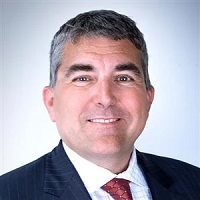The Seven Deadly Sins of Wealth Management
If you want a happy retirement, it's critical to pay attention to these 'sins' — ignoring even one could put your dream retirement at risk.


Profit and prosper with the best of Kiplinger's advice on investing, taxes, retirement, personal finance and much more. Delivered daily. Enter your email in the box and click Sign Me Up.
You are now subscribed
Your newsletter sign-up was successful
Want to add more newsletters?

Delivered daily
Kiplinger Today
Profit and prosper with the best of Kiplinger's advice on investing, taxes, retirement, personal finance and much more delivered daily. Smart money moves start here.

Sent five days a week
Kiplinger A Step Ahead
Get practical help to make better financial decisions in your everyday life, from spending to savings on top deals.

Delivered daily
Kiplinger Closing Bell
Get today's biggest financial and investing headlines delivered to your inbox every day the U.S. stock market is open.

Sent twice a week
Kiplinger Adviser Intel
Financial pros across the country share best practices and fresh tactics to preserve and grow your wealth.

Delivered weekly
Kiplinger Tax Tips
Trim your federal and state tax bills with practical tax-planning and tax-cutting strategies.

Sent twice a week
Kiplinger Retirement Tips
Your twice-a-week guide to planning and enjoying a financially secure and richly rewarding retirement

Sent bimonthly.
Kiplinger Adviser Angle
Insights for advisers, wealth managers and other financial professionals.

Sent twice a week
Kiplinger Investing Weekly
Your twice-a-week roundup of promising stocks, funds, companies and industries you should consider, ones you should avoid, and why.

Sent weekly for six weeks
Kiplinger Invest for Retirement
Your step-by-step six-part series on how to invest for retirement, from devising a successful strategy to exactly which investments to choose.
Not that long ago, I gave a talk — in a building that was once a church, believe it or not — on what I call the "seven deadly sins of wealth management."
I'd like to share a brief overview of those remarks and invite you to reflect on your own journey as a saver and investor.
Not to be weighty, but these are not trivial matters. These are "deadly" sins for a reason … any one of them can seriously jeopardize your chances of attaining the objectives that align with the hopes, dreams and expectations specific to you.
From just $107.88 $24.99 for Kiplinger Personal Finance
Become a smarter, better informed investor. Subscribe from just $107.88 $24.99, plus get up to 4 Special Issues

Sign up for Kiplinger’s Free Newsletters
Profit and prosper with the best of expert advice on investing, taxes, retirement, personal finance and more - straight to your e-mail.
Profit and prosper with the best of expert advice - straight to your e-mail.
Kiplinger's Adviser Intel, formerly known as Building Wealth, is a curated network of trusted financial professionals who share expert insights on wealth building and preservation. Contributors, including fiduciary financial planners, wealth managers, CEOs and attorneys, provide actionable advice about retirement planning, estate planning, tax strategies and more. Experts are invited to contribute and do not pay to be included, so you can trust their advice is honest and valuable.
Sin No. 1: Not starting with purpose
This problem plagues many investors and wealth managers alike. If you prioritize money before meaning, how can you possibly succeed? You haven't even identified what success means.
At the core of every significant endeavor lies a purpose, a deep-seated driver that shapes our actions and decisions.
Psychological and social sciences offer a wealth of understanding about human motivation, emphasizing the power of emotions in driving our choices.
Each person harbors one of four "power emotions" — happiness, contentment, success or fulfillment — that should ideally dictate how they manage their wealth.
A good way to "start with purpose" is to identify that power emotion, then include it in a personal statement of financial purpose.
Here's an example for a person — who happens to be me — with a power emotion of happiness:
"I am happiest when spending time and money with my family, engaging in experiences related to wine, water and music."
This statement does more than outline a lifestyle; it sets a clear direction for financial planning and goal setting.
It's not merely about accumulating wealth but about using that wealth to enrich one's life and the lives of those they care about. As a goal, it carries emotion in a way "retire at 65" never can.
Crafting a statement of financial purpose is usually a discovery process, not just an articulation of something already known. Take your time with this. This — not money — is the true foundation of long-term success.
Sin No. 2: Starting for your destination without guidance
You've created a compelling destination, articulated in your statement of financial purpose. Now you need a plan for how to get there. Otherwise, you're just daydreaming.
A plan has to be more than a map. Static information isn't enough. You need active guidance that stays true to your purpose.
Imagine you're sitting with a close friend and confidant and find yourself sharing your statement of financial purpose: "You know, what I'm really all about is spending time with my family around certain types of experiences, including music."
Wouldn't you want your friend to call you out on that? "OK, I hear you, but is that really what you're doing? Because you told me you had a chance to take your adult daughter to see Taylor Swift and turned it down."
That's a good friend right there, pointing to something humans do all the time. We get clear about our purpose, then we let life and business get in the way, and we do nothing about it.
This is where the best financial advisers excel. They understand who you are. They know your destination. They provide you guidance along the way.
(By the way — I did take my daughter to see Swift in New York in 2023. It cost a ridiculous amount of money. If I hadn't been clear about my own statement of financial purpose, I wouldn't have done it, and that would have been a shame.)
Sin No. 3: Not making cash the king
What you do with your cash is one of two focal points of leading your best life. Ask yourself, "Am I spending my money consistent with my purpose?" (The other focal point is time: "Am I spending my time consistent with my purpose?")
These focal points are central to a financial plan. A good plan guides your spending — both on what and when.
Then what you need is alignment. According to a 75-year Harvard study, people — across the generations — are happiest when they're spending their precious time and money on things that matter to them.
Imagine you've hired a biographer to chronicle your life. The biographer accesses your credit card statement and your calendar. Would the story the biographer writes based on those sources be consistent with your purpose?
To stay true to a purpose, you need to hold yourself accountable to alignment. Of course, that's easier said than done.
Sin No. 4: Letting dollars be lazy
The positive corollary of this sin is the well-known budgeting phrase "every dollar needs a job." Your financial plan should outline who, what and when money is for.
When you do this work, you may discover that:
You're not yet saving enough. This is a top concern for most clients. "Am I saving enough to retire comfortably?" Saving and investing do require delayed gratification.
You're not dreaming big enough. This may be surprisingly uncomfortable. Many people underspend what their financial plan accommodates. This may be because people experience losses with twice the intensity as they experience gains.
It may also be because they've made delayed gratification a habit … which then morphs into a belief that delayed gratification is what good, smart people do.
Either way, don't let either fear or shame make decisions for you. When you start with purpose, and when you establish a clear plan for spending and give every dollar a job, you can rest easier knowing you're on a path for living the best life you can.
Looking for expert tips to grow and preserve your wealth? Sign up for Adviser Intel (formerly known as Building Wealth), our free, twice-weekly newsletter.
Sin No. 5: Assuming investments are an end rather than a means
Investing is not a sport. It's not something to do for its own sake. It's something to do to help fulfill your financial purpose.
For that reason — and not because of anything the financial media or investment industry says — investing is critically important. Solid investment performance means you can fulfill your objectives more fully, whatever they are. That's just true.
So, always think about investing in the context of your own purpose. You're not investing to compete or compare. You're investing to help accomplish what you want to.
Think about what this means for investment risk and return. Ask yourself, "How much risk am I willing to take to dream as big as I want to dream?"
Maybe you'll discover you can fulfill your dreams while taking less risk than you are currently. In that case, it's our responsibility as advisers to help you do that.
Or maybe you'll find you want to take a little more risk to dream a little bigger. That, too, informs our actions as advisers.
Investing isn't about comparing a line on a piece of paper with another line on the paper; that would be an end in itself. Rather, investing is a means to achieve something far more personal and real.
Sin No. 6: Walking up — and especially down — the mountain without a sherpa
If you've read the book Into Thin Air by Jon Krakauer, you may recall that four times more people die coming down Mount Everest as going up. There are several reasons for this, including altitude sickness and fatigue, but the most important difference is loss of options.
On the way up, you can turn around, climb faster, rest longer and otherwise adapt to the situation. But when you reach the summit, you have to come down — because if you stay overnight, your chances of dying are very high.
As Krakauer relates, the death rate for Mount Everest climbs has come way down, from about 25% to 4% of climbers. That's because of sherpas, professional climbers who have seen many people go up and down and know all the mistakes.
Especially when the unexpected occurs, you want the wisdom of a sherpa to get you down off the mountain.
Here's how that relates to investing. In the accumulation phase, you can make plenty of mistakes. Maybe you got a little greedy and invested at a higher risk tolerance than you actually have.
Maybe you got a little fearful and failed to take action when you should have. You can adjust. You have time.
But in the liquidation (decumulation) phase, you have less room for error. You're later in life, obviously. Plus, your non-investment income may be substantially lower. Time to avoid mistakes.
Sin No. 7: Buying into the dream but ignoring the process
If you don't execute, you haven't really done anything. Execution is a combination of:
- Compelling purpose
- Solid strategy
- Aligned behaviors
- Controlled (but understood) emotions
- And a little luck
In my experience, all of these — even the bit of luck! — benefit from process. The best financial advisers start the process as your biographer, coming to know who you are financially and clarifying your purpose.
Then they continue in two ways:
First, as your financial analyst — always ready to help run the numbers, whether that's about dreaming bigger or catching up.
Second, as your coach — able to look you in the eye and say, "Look at your calendar and your credit card statement. We either need to change your purpose or your behaviors, because you wanted to do something, and your plan would have supported it, but you didn't choose to proceed."
To embrace both the dream and process, I encourage you to develop a statement of financial purpose and share it with your financial adviser.
That's the place to start for avoiding the deadly sins and accomplishing your objectives.
Related Content
- Eight Habits for a Happy Retirement
- Why Doing What You 'Ought' in Retirement Beats Doing Whatever You Want
- The Five Stages of Retirement (and How to Skip Three of Them)
- Five Things I Wish I'd Known Before I Retired
- Retirees' Anti-Bucket List: 10 Experiences You Don't Want
Profit and prosper with the best of Kiplinger's advice on investing, taxes, retirement, personal finance and much more. Delivered daily. Enter your email in the box and click Sign Me Up.

Joe Maier is the Senior Vice President, Director of Wealth Strategy at Johnson Financial Group. Joe is knowledgeable in helping clients with their business succession, financial and estate planning and post-death administration needs. He has a breadth of experience serving family businesses and a deep understanding of wealth transfer strategies. Along with strong leadership and collaboration in corporate and private law practice environments, Joe is well-versed in working with family offices, business owners and corporate executives to help them meet their wealth and legacy planning goals.
-
 Quiz: Do You Know How to Avoid the "Medigap Trap?"
Quiz: Do You Know How to Avoid the "Medigap Trap?"Quiz Test your basic knowledge of the "Medigap Trap" in our quick quiz.
-
 5 Top Tax-Efficient Mutual Funds for Smarter Investing
5 Top Tax-Efficient Mutual Funds for Smarter InvestingMutual funds are many things, but "tax-friendly" usually isn't one of them. These are the exceptions.
-
 AI Sparks Existential Crisis for Software Stocks
AI Sparks Existential Crisis for Software StocksThe Kiplinger Letter Fears that SaaS subscription software could be rendered obsolete by artificial intelligence make investors jittery.
-
 Quiz: Do You Know How to Avoid the 'Medigap Trap?'
Quiz: Do You Know How to Avoid the 'Medigap Trap?'Quiz Test your basic knowledge of the "Medigap Trap" in our quick quiz.
-
 5 Top Tax-Efficient Mutual Funds for Smarter Investing
5 Top Tax-Efficient Mutual Funds for Smarter InvestingMutual funds are many things, but "tax-friendly" usually isn't one of them. These are the exceptions.
-
 Why Invest In Mutual Funds When ETFs Exist?
Why Invest In Mutual Funds When ETFs Exist?Exchange-traded funds are cheaper, more tax-efficient and more flexible. But don't put mutual funds out to pasture quite yet.
-
 We Retired at 62 With $6.1 Million. My Wife Wants to Make Large Donations, but I Want to Travel and Buy a Lake House.
We Retired at 62 With $6.1 Million. My Wife Wants to Make Large Donations, but I Want to Travel and Buy a Lake House.We are 62 and finally retired after decades of hard work. I see the lakehouse as an investment in our happiness.
-
 Social Security Break-Even Math Is Helpful, But Don't Let It Dictate When You'll File
Social Security Break-Even Math Is Helpful, But Don't Let It Dictate When You'll FileYour Social Security break-even age tells you how long you'd need to live for delaying to pay off, but shouldn't be the sole basis for deciding when to claim.
-
 I'm an Opportunity Zone Pro: This Is How to Deliver Roth-Like Tax-Free Growth (Without Contribution Limits)
I'm an Opportunity Zone Pro: This Is How to Deliver Roth-Like Tax-Free Growth (Without Contribution Limits)Investors who combine Roth IRAs, the gold standard of tax-free savings, with qualified opportunity funds could enjoy decades of tax-free growth.
-
 One of the Most Powerful Wealth-Building Moves a Woman Can Make: A Midcareer Pivot
One of the Most Powerful Wealth-Building Moves a Woman Can Make: A Midcareer PivotIf it feels like you can't sustain what you're doing for the next 20 years, it's time for an honest look at what's draining you and what energizes you.
-
 Stocks Make More Big Up and Down Moves: Stock Market Today
Stocks Make More Big Up and Down Moves: Stock Market TodayThe impact of revolutionary technology has replaced world-changing trade policy as the major variable for markets, with mixed results for sectors and stocks.